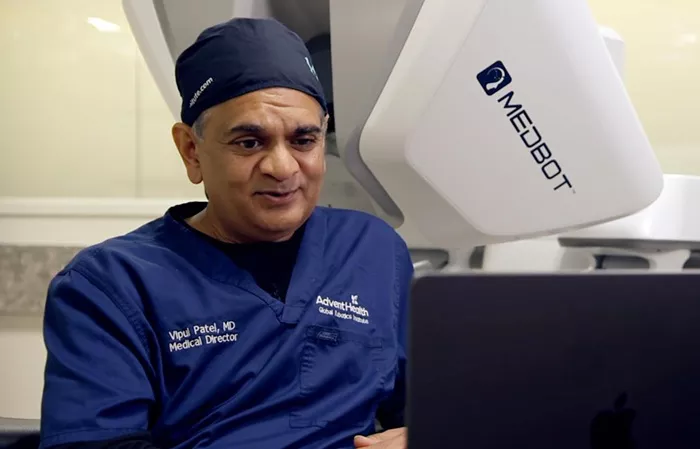Fernando da Silva, a prostate cancer patient from Angola, underwent a pioneering surgery last month — performed remotely by a surgeon 7,000 miles away in Orlando, Florida.
Da Silva was diagnosed with prostate cancer in March. By June, a leading surgeon, Dr. Vipul Patel, carried out a robotic prostatectomy on him from the Global Robotic Institute at Advent Health in Orlando. This surgery marked the first human clinical trial approved by the U.S. Food and Drug Administration (FDA) to test transcontinental robotic telesurgery.
“We’ve been working on this for two years,” Dr. Patel told ABC News after the procedure. “We traveled the globe, looking at the right technologies.”
Using a sophisticated robotic system, Dr. Patel operated with enhanced visuals and precise controls, allowing a less invasive surgery and faster recovery. Unlike traditional surgery, robotic procedures let surgeons operate remotely from a console.
Typically, surgeons work near their patients. But this trial tested the ability to perform complex surgery over long distances using fiber optic cables.
Patel highlighted the global impact. “The humanitarian implications are enormous,” he said. “Many underserved areas worldwide could benefit.” He also noted rural U.S. communities could gain from remote surgical expertise and emergency interventions.
During the operation, Patel’s surgical team was physically present in Angola, ready to take over if needed. “We had plans A, B, C, and D,” he said. “If the connection dropped, the team would safely finish the surgery.”
Patel plans to submit the surgery data to the FDA for review, aiming to expand remote robotic surgeries in the future.
“It was a small step for a surgeon, but a huge leap for healthcare,” he said.
Related topics:


